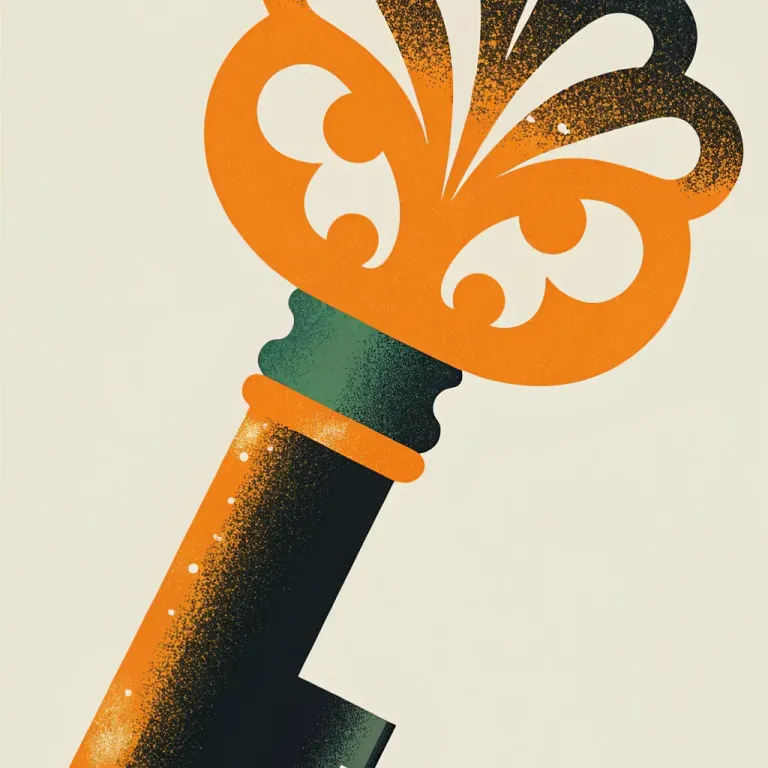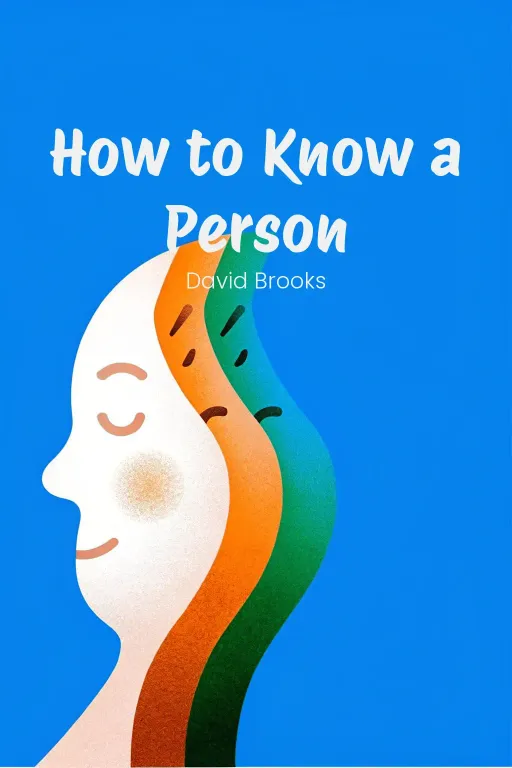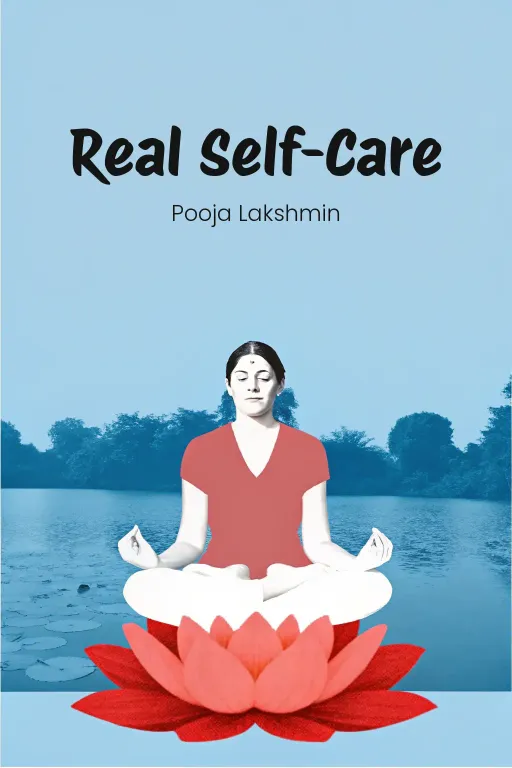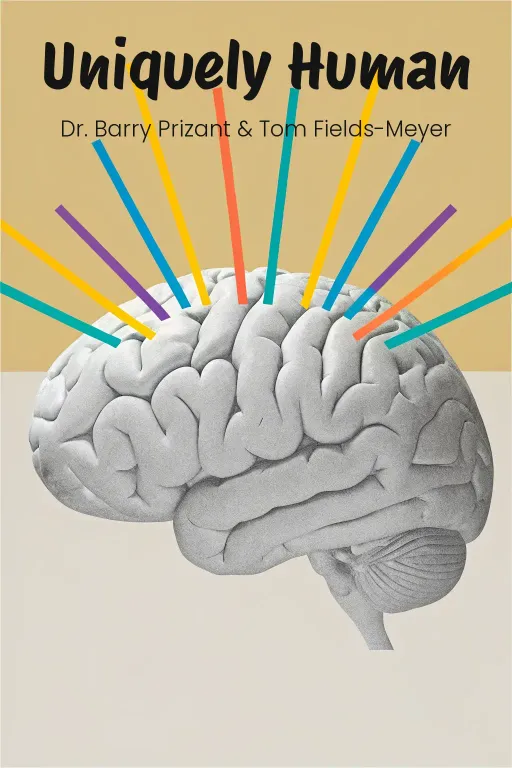
Is Your Tribe a Trap? Decode Cult Language
Podcast by The Mindful Minute with Autumn and Rachel
The Language of Fanaticism
Is Your Tribe a Trap? Decode Cult Language
Part 1
Autumn: Hey everyone, welcome back! Ever wonder what makes some groups so incredibly magnetic? Like, whether it's die-hard fitness fanatics or those MLM folks, they just seem totally sold on what they're doing. Is it just charisma, or a killer community, or is there maybe something else going on, something hiding in plain sight...like, language? Rachel: Language? Wait, so you’re saying it's not the promise of a six-pack or some "exclusive" insider info? The real secret sauce is…vocabulary? Autumn: Precisely, Rachel—but yeah, not just any vocabulary. I'm talking about the kind that fosters deep loyalty, forges a strong group identity, and, sometimes, keeps people hooked, and not always in a good way. That's basically the focus of today's episode, which is inspired by the book Cultish: The Language of Belonging. Rachel: Okay, let me guess here: this book isn't just about those "classic" cults, you know, the ones chilling in the jungle, sipping Kool-Aid, err, “Flavor-Aid”, right? Autumn: Exactly, it's way broader than that. This book looks at how specific language is used to create that almost irresistible pull of cult-like communities. It covers the extremes, sure—stuff like Jonestown and Heaven’s Gate—but then it goes all the way to the everyday, like your local spin class or even social media's algorithms. It’s totally fascinating how psychological, social, and cultural forces can blur the line between harmless enthusiasm and, well, outright manipulation. Rachel: Alright, awesome. So, today we’re breaking this down into three key areas, right? First, the language itself—those linguistic Jedi mind tricks that cults use to, y'know, reel people in. Autumn: Exactly! And then, we’re going to dive into some pretty infamous cults and see how their tactics and influences still echo today—like, even in places you'd least expect. Rachel: Like, CrossFit, or my cousin's "ground floor business opportunity"? Autumn: Exactly! Which brings us to our final area: identifying these potentially cult-like patterns in fitness, business, and even digital spaces—those places where we just never think to be on guard. Rachel: Gotcha. So, essentially, we're taking a tour, from Jonestown all the way to your local yoga studio. Excellent. So, what exactly makes a group feel like a family, or…a trap? Let’s get into it!
The Role of Language in Cultish Groups
Part 2
Autumn: Okay, Rachel, let's dive into the first big question: how does language function as both the glue “and” sometimes the leash within cultish communities? This is where the book really shines, dissecting how these groups utilize mantras, specific jargon, those canned "thought-terminating clichés," and all sorts of linguistic tools to forge identity and, well, enforce control. Rachel: Right, so let me play devil's advocate for a sec. How's this different from, say, how Harry Potter fans talk about Hogwarts Houses, you know, throwing around words like "Muggle" or "Expelliarmus"? Is it really about control, or is it just... quirky lingo? Autumn: That's a great question, Rachel. The key difference lies in the intent behind the language. In these cultish groups, language isn't just quirky, it's strategic, you see? It actively creates this in-group identity and then strengthens loyalty through that intense sense of belonging. Look at Tasha Samar's story in 3HO, for example. As a teenager, she was drawn in not only by the rituals but also by their unique lexicon: chants in Gurmukhi, spiritual jargon, and even getting her own "spirit name," Daya Kaur Khalsa. Rachel: So, the language is like an initiation, almost? You speak the jargon, and boom, you're "in." Autumn: Exactly! But it goes deeper than that. Those mantras and specialized terms became tools for, essentially, psychological conditioning. On the surface, it might just seem like meditation or prayer. But, failing to really internalize that language, or use it fluently, was framed as a personal failing. It's subtle, absolutely. But the result is pretty clear: you stay compliant because the group is defining your success, even your worth, through their language framework. Rachel: Hmm, like the verbal equivalent of a secret handshake, keeping outsiders, well, outside. But where does it stop being branding or just identity and actually veer into control, though? Autumn: That's where "loaded language" comes into play. It assigns strong emotional meaning to otherwise neutral words, which then creates this stark "us versus them" divide. In 3HO, for instance, phrases like "lizard brain" and "Piscean consciousness" were those loaded terms with double meanings. Members saw them as tools for spiritual growth, but they also sent a clear message: If you don't align with the teachings, you are spiritually regressing. Rachel: So... step in line or become a lizard. Got it. Reminds me of some gyms I've been to where not going beast mode basically makes you an outcast. Wasn’t there a similar vibe with CrossFit? Autumn: Absolutely! Look at Alyssa Clarke's experience in the CrossFit community. There's this entire shared lexicon—terms like "WOD" for "Workout of the Day," shouting "Beast Mode!" during a tough session. At first, it's exhilarating. You feel like you've found your people, your... language. But, over time, it fosters really intense social pressure. If you don't keep up, if you don't speak the lingo fluently, you feel like you're falling short, and that failure isolates you from the group Rachel: Okay, so we've got 3HO with its elite spiritual lexicon, and then CrossFit with its adrenaline-fueled acronyms. But what actually makes this language so powerful? Is it only about feeling like you belong? Autumn: Belonging is a huge piece, definitely, but it's also about thought control. That's where these "thought-terminating clichés" come in. These are short, oversimplified phrases that are designed to shut down deeper critical thinking. You'll hear them everywhere in cult-like environments. Take phrases such as "Trust the process" in a traditional cult, or "No pain, no gain" in fitness culture. They sound motivational, right? But what they're really doing is silencing doubt. If you're on the verge of questioning something, these slogans swoop in and just stop you in your tracks. Rachel: Kind of like ready-made answers to big, messy questions. Like, "Why am I injuring myself in this WOD?" "No pain, no gain." End of discussion! Autumn: Precisely! It's comforting, sure, but it also stifles independent thought, and then piles onto the social pressure you're already feeling. Alyssa, for instance, was confronted with phrases like "Push through the burn," which led her ignore her own limits in order to conform to the group's value system. Over time, these thought-terminating clichés become a tool to prioritize group loyalty over personal well-being. Rachel: Which is totally manipulation disguised as inspiration. And I'm guessing once you're fluent in the group’s language, it’s really hard to step outside of it? Autumn: Exactly! Language creates what I like to call a "verbal bubble." Once you're immersed, it's harder to connect with anyone outside the group. Tasha, for instance, felt completely isolated in 3HO. That unique hierarchy of terms and practices, even something like her spiritual name, actively created barriers between her and the rest of the world. Rachel: Right, like you're here, wielding your elite vocab, and outside the group, no one has a clue. Pushes you further into the bubble. Autumn: Exactly. And Alyssa's story with CrossFit reflects that same isolation. While she initially found empowerment in the shared lexicon, over time it deepened her focus on those internal group values. It created this gap between her and friends who just weren't part of that intense fitness culture. Rachel: So, what we're really seeing is how these linguistic systems function like a double-edged sword: building a tight community, sure, but also potentially turning it into a cage of sorts.
Historical and Modern Manifestations of Cultish Behavior
Part 3
Autumn: Exactly, Rachel. Understanding how language builds and sustains these communities “really” makes you think about the psychology and the mechanisms behind it. And that leads us to the next part: Historical and Modern Cultish Behavior. We can bridge historical context with how this stuff plays out today, the continuity and evolution of cultish practices. Think about the past – Jonestown, Heaven’s Gate – versus the algorithm-driven movements we see now, like QAnon. Rachel: Right, we're going from jungles and UFOs to hashtags and forums. Perfect. So, Jonestown – everyone kind of knows the basics: mass suicide, Jim Jones, weird sunglasses. But how did it actually get to that point? Autumn: It’s a “really” clear example of how charismatic leadership and linguistic control can lead to devastating outcomes. Jim Jones started the Peoples Temple in the 60s, a time of a lot of social and political turmoil: civil rights struggles, Vietnam protests, just a general mistrust of the government. He promised a utopia of equality and justice, and that resonated with people who were just looking for stability and belonging. Rachel: So he was tapping into those big, existential voids. But lots of leaders give that kind of rallying cry – you think of Martin Luther King or Gandhi. What made Jones different? Autumn: It's how Jones used language to manipulate his followers. I mean, it wasn't just lofty ideals; he actually engineered the group’s reality through specific, loaded terms. You know the phrase "revolutionary suicide," right? Rachel: Yeah, I always thought it was just Jones trying to justify that tragic ending. Is there more to it? Autumn: Oh, definitely. He re-framed it in a way that completely twisted the meaning. To outsiders, "suicide" is despair, giving up... But Jones redefined it as an act of defiance against oppressive systems, a symbol of resistance and courage. For his followers, it wasn’t a loss, it was a righteous stand. It’s horrifying, but incredibly effective, psychologically speaking. Rachel: So, a linguistic sleight of hand – taking something negative and turning it into a virtue. And then locking them into his narrative, I'd guess? Autumn: Exactly. He embedded their identity into his language framework. And that’s not all. In the early stages, he used love-bombing, constant verbal praise and affection, to get unshakable loyalty. Then, when they moved to Guyana, he used that same language as a tool of control. Members were taught that any criticism of his teachings was "betrayal," and their doubts were signs of spiritual weakness. Rachel: Isolation and thought control. A winning combo if you want to keep people stuck where they are. But still… over 900 people, including children, "drinking the Kool-Aid" - or Flavor Aid, sorry? Autumn: Well, the irony is, by then they weren’t just following Jones; they were living entirely within the linguistic world he'd created. Survivors like Leslie Wagner Wilson describe how phrases like "revolutionary suicide" were drilled into them over time. It wasn’t a quick decision; it was built into their worldview. The language wasn’t just words; it was how they thought. Rachel: That’s chilling. And it’s wild how people still use "drinking the Kool-Aid" almost casually without knowing how horrifying that history is. Autumn: That casual use shows how detached we become from the weight of the term. But it demonstrates how powerful language can be when it's aimed at shaping a group’s sense of reality. Rachel: And that power wasn’t just in one jungle in Guyana. Heaven’s Gate – totally different setup, right? Still, the same linguistic traps? Autumn: Mm-hmm. Heaven’s Gate, led by Marshall Applewhite, took its followers to a completely different place, literally and metaphorically. It was a mix of apocalyptic spirituality and sci-fi. Applewhite claimed their souls would ascend to a spaceship after death. But again, the key was language. Rachel: I remember seeing old videos of him: the matching tracksuits of his followers, which… wow. So what language tricks was he using? Autumn: Applewhite redefined everyday words to create what I call a linguistic ecosystem. Words like "exit," "higher level," or even "vehicle" were given extraterrestrial meanings. "Exit," for example, wasn’t just leaving a room; it was leaving Earth to get to their celestial destiny. Rachel: Right, it’s like you only insiders understand the meaning. Autumn: Exactly. It wasn’t just unique words; it was manipulating metaphor and belief to create an unshakable reality. When Applewhite called their mass suicide their "exit," it wasn’t death but an upgrade. That “really” softened the gravity of their actions, making them see suicide as a steppingstone. Rachel: Again, spinning tragedy into triumph. How about dissenters in the group – someone who had second thoughts? Couldn’t they leave? Autumn: That’s where Applewhite’s system was so insidious: dissent became almost impossible. His lexicon framed questioning as spiritual regression or betrayal. It created an echo chamber where members couldn’t reconcile outside perspectives with their own beliefs. It’s, similar to Jonestown, where leaving wasn’t just hard physically; it was psychologically unthinkable. Rachel: Okay, so Jones and Applewhite had geographic isolation working for them. One in Guyana, the other in California mansions. What happens when you take those tactics and move them online, where there’s no physical isolation? Autumn: That’s where QAnon comes in. Instead of physical barriers, QAnon creates virtual ones, using algorithms and digital spaces. It's a decentralized movement that thrives on cryptic language and shared "insider" terms to foster community. It’s just those same techniques, updated for the Internet. Rachel: The whole "Q" thing? Anonymous, right? There's no leader; and yet followers treat every vague post like gospel. Autumn: Exactly. "Q" posts cryptic messages or "drops" on forums like 4chan, and followers decode and share those messages. The language they’ve built around it – "The Storm," "sheeple," "Great Awakening" – cements the in-group identity. To followers, using that shared vocabulary signals enlightenment; they're privy to a secret truth. Rachel: And if you're not using that vocabulary? You’re one of the sheeple, right? Creating that us-versus-them thing again, only now it’s viral instead of isolated to a single compound. Autumn: Yep. Modern platforms amplify it. Social media algorithms prioritize sensationalist content, so QAnon narratives quickly find at-risk individuals looking for clarity or purpose. And once you’re in, the same patterns emerge: loaded language, thought-terminating clichés, an echo chamber that isolates you from critical perspectives. Rachel: So QAnon took what Jones and Applewhite built and updated it for the digital age -- new tools, same traps. And the scary part is, it's infinitely scalable.
The Intersection of Cultishness and Modern Wellness & Capitalism
Part 4
Autumn: Recognizing these patterns helps us see how modern platforms are amplifying and adapting cult-like tactics in today’s digital world. Which brings us to the core of this segment: the intersection of cultishness with modern wellness and, of course, capitalism. It’s not just about isolated groups anymore—these techniques have seeped into everyday life, quietly settling into industries like fitness, self-help, and MLMs. We're talking about broader systems that use language, community, and belonging as double-edged swords. Rachel: So, these days it’s less about the Kool-Aid—or, okay, fine, Flavor-Aid—and more about boutique spin classes and “boss babes” peddling essential oils with a side of empowerment. Fantastic. Let’s unpack these modern cultish hybrids. Autumn, you’ve been doing your homework, right? Autumn: Absolutely! Let's start with wellness, which is one of the most fascinating areas where these dynamics play out. Consider something seemingly harmless, like a fitness studio, say, SoulCycle. On the surface, it's just an exercise class, right? But it's really much more than that. The language they use transforms a simple workout into something... almost spiritual. Rachel: I know, I've heard friends gushing about how a 7 a.m. SoulCycle class “changed their life.” Really? Or is that just an endorphin rush talking – a placebo at best? Autumn: See, that’s the brilliance of it. SoulCycle uses language to elevate exercise into a personal journey. Phrases like “find your soul” or “push through the burn” – they’re not just motivational, they imply transcendence. You're not just pedaling; you're transforming. In a chaotic world, the promise of fitness and emotional clarity is incredibly seductive. Rachel: Okay, fair enough. But how far can a placebo effect really go? "Push through the burn" sounds like standard gym stuff to me, not, you know, manipulation. Autumn: True. But it's not just the phrases themselves, it’s the environment they create. You're immersed in intense group energy, surrounded by dim lighting, pulsing music, and instructors who are almost...preacher-like. People walk out feeling euphoric, like they belong to something bigger. But when more stories surfaced—like those 2020 revelations about toxic power dynamics at SoulCycle—a pattern emerged. This euphoric language masked some pretty heavy-duty exploitation. Rachel: Oh, right, the whole "cult of charisma" instructor thing. Remind me, wasn’t there this super cringey insider phrase: "Your riders should want to be you or… uh, be with you"? I mean, yikes. Autumn: Exactly! That says everything. The instructors weren’t just leaders, they were idols, wielding incredible influence. And that same motivational language, which on the surface was empowering, could foster dependency. Riders tied their self-worth to instructor approval. If they skipped a class, it wasn't just a missed workout – they felt like they lost a part of themselves. Rachel: Yikes. And I just thought SoulCycle was just overpriced cardio. But it does make sense, doesn't it? Emotional highs are great... until suddenly, you’re on this hamster wheel of dependency. Autumn: Exactly, that dependency is key. And it's not just an isolated case, either. Similar power dynamics appear in fitness groups like CrossFit, where community jargon—a shared lexicon of terms like “WOD” or “RX standards”—creates an us-versus-them dynamic. It feels great being part of the tribe, calling yourself a "CrossFitter." But as Alyssa Clarke's story shows, it's also a double-edged sword. Her identity was tied to this fitness ecosystem, to the point where social pressure eclipsed her own boundaries. Rachel: Okay, so we have this intense group language and toxic loyalty baked into the fitness world. Enter "No pain, no gain"—a slogan that basically steamrolls anyone considering moderation. Talk about a thought-terminating cliché, right? Autumn: Exactly! Those phrases work like mental roadblocks. They oversimplify complex emotions—doubt, burnout, even injury—and replace them with slogans. Alyssa talked about hearing "trust the process" every time she hesitated. It pushed her to ignore physical warning signs, convinced that leaving the program meant failure – not just at CrossFit, but as a person. Rachel: Language as a leash, yet again. Honestly, this kind of doublespeak seems to thrive where self-improvement gets monetized. Which brings me to MLMs – the ultimate playground for exploitation disguised as, you know, empowerment. So, what’s happening there? Autumn: MLMs are fascinating because they target people's dreams of independence and community, wrapping predatory systems in empowering language. Take the "boss babe" phenomenon. Slogans like "Be your own CEO!" convince women—especially stay-at-home moms—that they're becoming entrepreneurs. But that language disguises a setup where, statistically, most participants lose money while a tiny minority at the top profit. Rachel: And they present failure as a you problem, right? Like, “Oh, didn’t make a profit? Must be your lack of hustle, not, you know, the pyramid scheme part.” Autumn: Exactly. That's where "uplifting" rhetoric becomes weaponized. When MLM participants struggle, they're told success comes from more effort or more positivity. That rhetoric leans heavily on the Protestant work ethic, the idea that hard work should inherently lead to success. In reality, MLMs rely on some pretty major systemic flaws: a skewed earning structure and constant recruitment pressure. But participants internalize failure as their personal inadequacy. Rachel: Wow, talk about moving the goalposts. I'm guessing this same language builds an echo chamber, too? One that literally pays you to pull your friends in? Autumn: Right! Community becomes the hook. Conferences, training events—they all use emotionally charged language about sisterhood and financial freedom. But this solidarity is conditional. Question the model, and suddenly you’re labeled “negative” or “a bad influence” and, worse, ostracized. That fear silences valid criticisms. Rachel: So, between fitness cults, MLM mantras, and spin instructors who channel zealots, it's clear modern capitalism loves adapting cultish playbooks. But let’s not ignore where this all converges: digital platforms. Any thoughts on so-called conspirituality? Autumn: Oh, absolutely. Conspirituality sits right at the intersection of wellness, consumerism, and conspiracy theories. It uses concepts like "self-healing" and "intuition" and blends them with a mistrust of institutions, whether that's vaccines or governments. The language is subtle—phrases like "awaken the healer within" sound so harmless. But it paves the way for conspiratorial beliefs... all under the guise of empowerment. Rachel: And influencers are fueling the fire. You’ve got candlelit yoga in one post, and the next, essential oils being touted as COVID cures, basically pseudoscience wrapped in good vibes. Autumn: Exactly. Social media amplifies this hybrid messaging. Algorithms boost engaging content, which often means highly emotive—and highly misleading—posts gain traction. Influencers push products while planting seeds of conspiracy, creating income streams and loyal followings. It’s almost the language of control hidden behind a wall of hashtags. Rachel: So, whether you’re on a spin bike or scrolling through Instagram, similar patterns keep cropping up—a unique group vocabulary, inspirational slogans that stifle any doubt, and, of course, the seductive promise of transformation, purpose, and belonging. Only this time, it’s scalable across billions. Autumn, this is starting to sound less like modern wellness and more like… the Matrix.
Conclusion
Part 5
Autumn: Okay, Rachel, so today we’ve really dug into how language functions as both the thing that binds people together and, well, the thing that keeps them in line, especially within groups that have, let’s say, “cultish” elements. We talked about mantras, specialized jargon, those thought-stopping clichés... We looked at how these linguistic tools create a sense of belonging, shape identity, and, you know, sometimes even manipulate. We touched on historical examples like Jonestown, Heaven’s Gate, and more recently, QAnon too. Rachel: Yeah, and it's not just those extreme examples, right? We’ve seen how these techniques have kind of seeped into everyday things like wellness culture, even capitalism. Suddenly, fitness studios, MLMs, even social media become breeding grounds for these cult-like dynamics. It’s like, everywhere you look, it's the same old playbook, just updated for different audiences—from those spin classes that are always sold out, to the… what do they call them? #bossbabe hustle. Autumn: Right! Which brings us to the most important thing. Language really shapes not only how we connect with each other, but also how we actually think, and what boundaries we put in place for ourselves—or fail to put in place. By paying attention to the words we use, and how they're affecting us, we can hopefully tell the difference between what’s “really” empowering and what’s… well, exploitative. Rachel: So before you’re screaming "Beast Mode" at the gym, or jumping into a “game-changing” business opportunity, maybe it’s worth taking a second to ask yourself: is this language actually helping me grow, or is it kind of boxing me in? Autumn: Exactly! Language is a tool, that's all it is. And understanding just how powerful it can be is the first step toward taking back control in environments that might feel… cultish. So, thanks for joining us as we tried to break down the language of belonging. And until next time, stay curious, and keep asking questions! Rachel: And definitely keep an ear out for those thought-terminating clichés. Here’s a spoiler—they’re probably not as inspiring as they sound.









